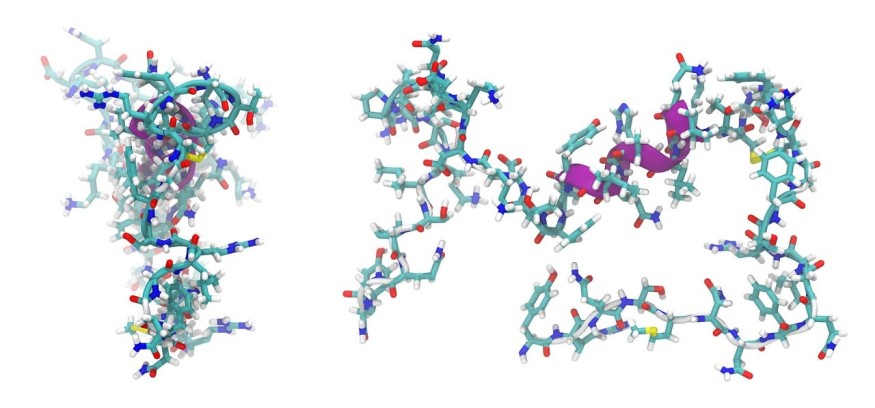
Therapeutic peptides have emerged as a promising field in drug discovery and development, with applications spanning a wide range of diseases. This overview will delve into the recent advances in the development of therapeutic peptides, focusing on their applications in specific diseases such as cancer, neurodegenerative disorders, and cardiovascular diseases.
Therapeutic Peptides: An Overview
Therapeutic peptides are small proteins that can be used to treat various diseases. They can be prepared through chemical synthesis or various biological methods, such as isolating bioactive peptides from natural sources, enzymatic synthesis, fermentation, recombinant DNA technology, and semisynthesis. As outlined in the journal Nature, these peptides have been used in a wide range of therapeutic areas, including urology, respiratory, pain, oncology, metabolic, cardiovascular, and antimicrobial applications.
Despite their potential, therapeutic peptides have two intrinsic drawbacks: membrane impermeability and poor in vivo stability, which represent major stumbling blocks for peptide drug development. However, recent advances have improved the design, synthesis, modification, and evaluation of peptide drugs, overcoming these challenges and expanding their applications.
Advances in Cancer Therapies
Peptides have shown significant potential in cancer treatment. One of the most effective peptides in cancer treatment is pro-apoptotic peptides. These peptides can be very helpful due to their potential and diversity. To enhance the therapeutic potential of peptides, their limitations must be properly identified, and their structures must be engineered and modified for higher efficiency.
Peptides have also been used as tumor-homing ligands for delivering carriers and cargoes to tumors. Tumor-homing peptides have been conjugated with cargoes such as small-molecule or chemotherapeutic drugs via linkers to synthesize peptide—drug conjugates.
Peptides in Neurodegenerative Disorders
Peptides have also shown promise in the treatment of neurodegenerative disorders (NDDs). Synthetic and natural peptides like Carnosine are currently under research for the treatment of NDDs. Some crucial peptide inhibitors currently in use for neurodegenerative disorders include Aβ (16-20) KLVFF for Alzheimer's disease, NAPVSIPQ (NAP) for Parkinson's disease, and Vasoactive Intestinal Peptides (VIP) for Huntington's disease.
Peptides in Cardiovascular Diseases
Cardiovascular diseases (CVDs) are the leading cause of death worldwide, with an estimated 17.9 million deaths per year. The development of novel and effective therapies for CVDs is an urgent need. Therapeutic peptides have found application in this field, offering a promising avenue for the development of new treatments.
Nootropic Effects of Therapeutic Peptides
In addition to their therapeutic applications, peptides have also been associated with nootropic benefits. For instance, certain peptides have been found to enhance cognitive functions, improve memory, and increase learning capacity. These nootropic benefits further expand the potential applications of therapeutic peptides into areas such as Alzheimer's disease and cognitive decline.
Future Outlook
The field of therapeutic peptides is rapidly evolving, with significant advances in the design, synthesis, and application of these molecules. Despite the challenges associated with their development, therapeutic peptides hold great promise for the treatment of a wide range of diseases, from cancer and neurodegenerative disorders to cardiovascular diseases. As research continues, we can expect to see even more innovative applications of these versatile molecules in the near future.
© 2025 ScienceTimes.com All rights reserved. Do not reproduce without permission. The window to the world of Science Times.












